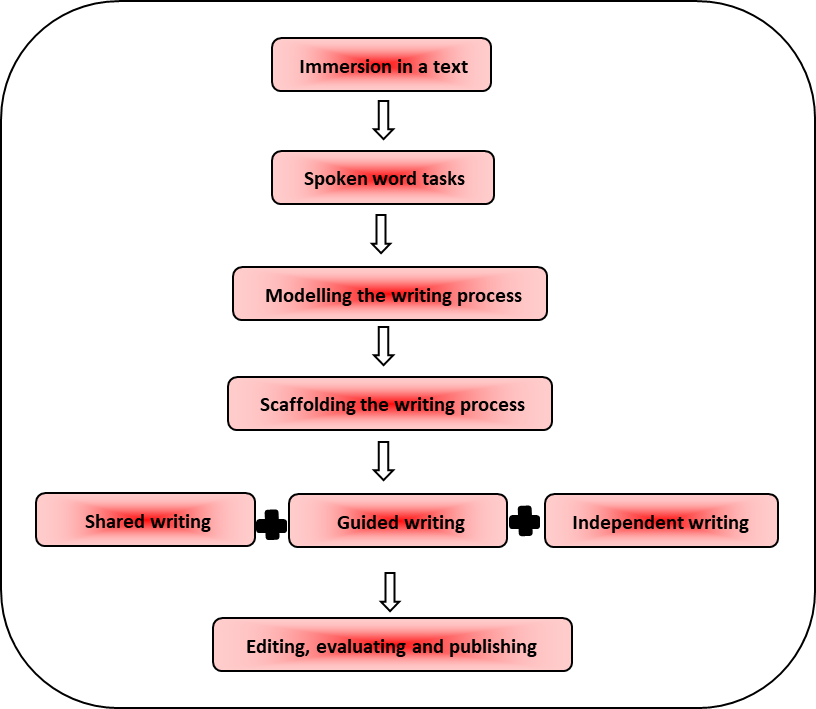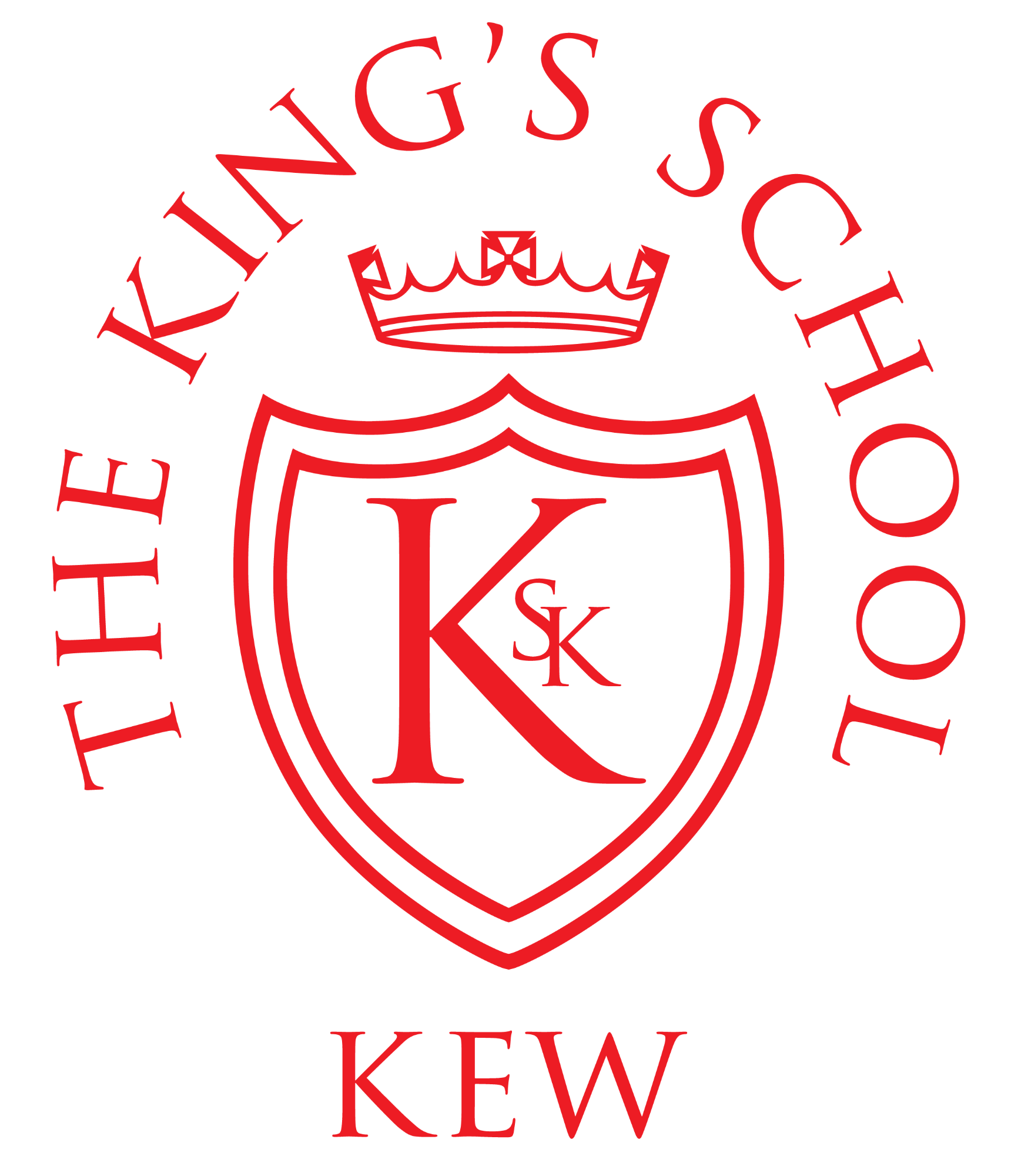English - Writing
"I can do all things through Christ who strengthens me" (Philippians 4:13)
Intent - How our curriculum is structured and organised
The King’s school learners acquire the necessary knowledge, skills and understanding to become lifelong learners. Our English curriculum is developed to enable successful, dynamic, confident readers, writers and communicators. This is achieved through immersion in a broad range of inclusive, high quality texts that represent different cultures, families and experiences. We instil a love for reading, a passion for discovery and a confidence to explore imagination through creative writing. Skills are developed by giving learners a purpose, audience and context to their written work. We believe that writing is strengthened and developed through the rigorous teaching of spelling, vocabulary and grammar. It is when learners can write with ease, confidence and grammatical accuracy that their writing truly becomes rich, varied, precise and effective for the reader.
Implementation - How our curriculum is taught
Carefully selected high-quality texts inspire and motivate our learners to write for purpose and meaning. By choosing a range of texts that acknowledge the different backgrounds of our children (and those beyond our school community), we support them from the very start of their writing journey.
The Early Year Foundation Stage (EYFS) is where our learners begin their journey to becoming successful, dynamic writers. They are immersed in a language-rich environment, where they absorb and experiment with rich vocabulary. Speaking and communicating with confidence are key to developing a writer’s language alongside building the physical skills needed to sit correctly and to grip and control a pencil to form letters, words and sentences. Phonics is taught daily and continually assessed to ensure every child builds their phonetical awareness (for more information, please see the Phonics and spelling page on our website). Writing opportunities and tasks that build fine and gross motor skills are planned for and promoted throughout the provision, both inside and outside. Each task has depth and challenge to ensure that learners are able to meet or exceed at the writing Early Learning Goal.
Children use their phonic knowledge to write words in ways which match their spoken sounds. They also write some irregular common words. They write simple sentences which can be read by themselves and others. Some words are spelt correctly and others are phonetically plausible.’
In Years 1 to 6, we build on the strong foundations established in the early years. We follow the English National Curriculum and methodically teach the skills required to develop writing in the areas of transcription; composition; and spelling, grammar and vocabulary. At The King's School, our English curriculum has been developed to ensure learners are articulate and equipped with strong vocabulary skills, as we know ‘one needs to be able to say it, to write it’. Writing development is also supported through the explicit teaching of spelling and grammar.
At every age and stage of learning The King's School writing journey involves:
Immersion in a text: exploring, discovering and dissecting the language choices of an author or poet. Our learners are articulate and expressive and by further developing their vocabulary, we are enabling them to accurately deconstruct and analyse a text or narrative (a variety of texts may be used to inspire and develop a writing outcome). The depth of discussion and understanding of a text can only emerge if a learner can access its language and intent.
A range of spoken word tasks are used to explore ideas, characters and plot. These vary from debates and discussions to drama and role play. Using a range of drama techniques and utilising our outdoor space which helps to engage learners, capture their imagination and bring a text to life. If learners have built empathy, understanding and respect for a narrative and asked questions of the moral and spiritual concepts, they will be able to confidently explore it and write with understanding and purpose.
Through modelling the writing process, learners are supported in their understanding of how to shape and construct a text. Teachers actively take on the role of modelling the thinking process behind writing, explaining and describing their word, punctuation, and sentence structure choices as they write an exemplar. This helps learners fully understand the value of text structure, sentence construction and vocabulary choices.
This knowledge and understanding is then applied through a scaffolded writing process where learners are supported to think like a writer and apply the skills established at the immersion and spoken language stages through shared, guided, and independent writing. Learners are also supported through 1:1, group and whole class feedback to ensure their writing is always evolving and improving.
Shared writing is used to engage learners further in the writing process. Collaboratively, they explore the grammatical and expressive choices an author makes to help construct a piece of writing, guided by their teacher, who asks for suggestions of vocabulary, grammatical choices etc. To do this effectively requires collaboration, team work and an appreciation of a text.
Guided writing is used for focused group/individual work, to further develop a skill (e.g., use of fronted adverbials) or to provide an opportunity to stretch and develop a technical skill. When and how often guided groups are used is assessed by the class teacher and are often guided by learners' individual writing targets.
Independent writing opportunities are provided when learners have been immersed, supported and taught the key skills required for a piece of writing. They are ready and confident to explore, experiment, use and apply technical tools, to produce a piece of writing for a shared audience and purpose. The aim is to be accurate, and expressive. The writing is approached in small sections allowing time for reviewing, editing, improving and feedback throughout the process, until publishing the completed work. High expectations are set for fluid, legible cursive handwriting and clear presentation.
The King’s School writing process sequence:

This writing model is adapted for each age group and the intended purpose and outcome of the writing task.
At The King’s School, we have developed a clear progression for each writing skill, covering phonics and spelling; sentence construction; grammar; spelling and punctuation; paragraphing; and handwriting. In addition, we detail the key terminology learners need to understand as well as the aspects of fiction and non-fiction writing taught at each stage of learning.
Personalised targets are used across the school to enable progression and for teachers to hone in on key technical skills. These are supported using ‘non-negotiables' that focus on basic learning skills (from the previous academic year's objectives) which are referred to, reviewed and reinforced in each year group, ensuring key basic skills are built on year on year.
Impact - A cohesive learning journey
As a result of our progressive, well-planned, modelled and scaffolded writing curriculum, our learners are articulate, expressive and responsive writers who compose for a range of purposes and audiences. Our mapping of writing progression and skills enables all children to make effective progress from their starting points and achieve outstanding end of Key Stage assessment results. Overall in KS2, attainment in reading, writing and maths in both the expected standard and in greater depth/higher standard remains significantly above national standards. In KS1, attainment of the expected standard in reading, writing and maths is significantly above national standards and in the highest 20% of all schools.
We aim for all our children to learn and flourish into proficient writers. By using rich and varied texts, we inform them of the complexities of the wider world that awaits them and furnish them with the skills to become lifelong successful, dynamic, confident readers, writers and communicators.
